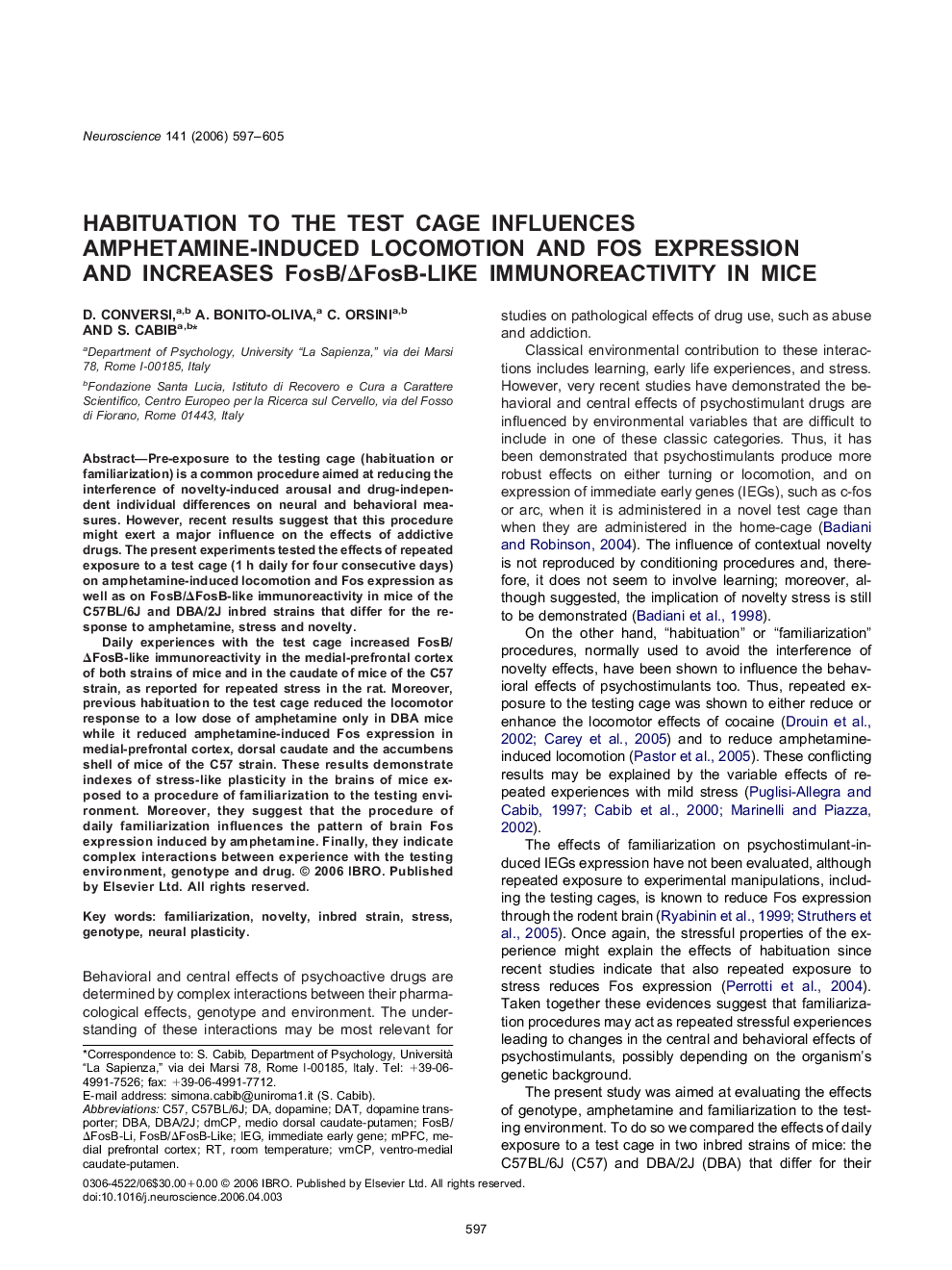| Article ID | Journal | Published Year | Pages | File Type |
|---|---|---|---|---|
| 4342756 | Neuroscience | 2006 | 9 Pages |
Pre-exposure to the testing cage (habituation or familiarization) is a common procedure aimed at reducing the interference of novelty-induced arousal and drug-independent individual differences on neural and behavioral measures. However, recent results suggest that this procedure might exert a major influence on the effects of addictive drugs. The present experiments tested the effects of repeated exposure to a test cage (1 h daily for four consecutive days) on amphetamine-induced locomotion and Fos expression as well as on FosB/ΔFosB-like immunoreactivity in mice of the C57BL/6J and DBA/2J inbred strains that differ for the response to amphetamine, stress and novelty.Daily experiences with the test cage increased FosB/ΔFosB-like immunoreactivity in the medial-prefrontal cortex of both strains of mice and in the caudate of mice of the C57 strain, as reported for repeated stress in the rat. Moreover, previous habituation to the test cage reduced the locomotor response to a low dose of amphetamine only in DBA mice while it reduced amphetamine-induced Fos expression in medial-prefrontal cortex, dorsal caudate and the accumbens shell of mice of the C57 strain. These results demonstrate indexes of stress-like plasticity in the brains of mice exposed to a procedure of familiarization to the testing environment. Moreover, they suggest that the procedure of daily familiarization influences the pattern of brain Fos expression induced by amphetamine. Finally, they indicate complex interactions between experience with the testing environment, genotype and drug.
